There has been much excitement since Australia signed a landmark agreement with the United States last month to expand cooperation on critical minerals and rare earth elements.
Please login below to view content or subscribe now.
Membership Login
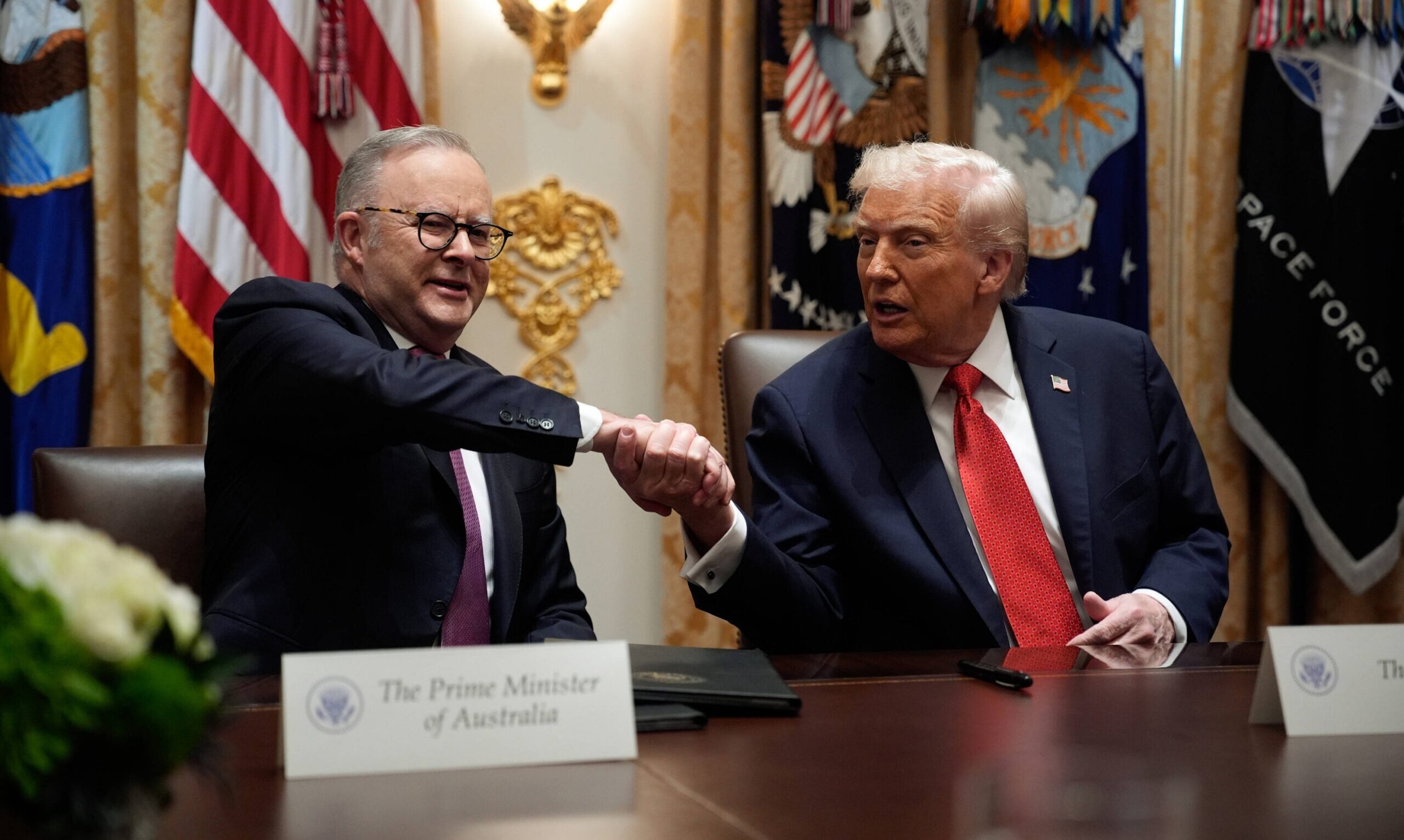
There has been much excitement since Australia signed a landmark agreement with the United States last month to expand cooperation on critical minerals and rare earth elements.
Please login below to view content or subscribe now.

In the last week, campuses scrambled to shore up resources as 42 million Americans, including over a million college students, prepared to lose federal assistance to buy food. Payments for the Supplemental Nutrition Assistance Program, or SNAP, didn’t go out on the first of the month as they normally would amid the ongoing government shutdown.
Now the Trump administration plans to dole out some of the benefits this month—but not all—in response to two federal court orders.
In court filings Monday, the Trump administration agreed to expend emergency reserves to issue partial benefits this month, but also said the funds will only cover half of eligible households’ current benefits. And for at least some states, payments could take months to come through because of bureaucratic hurdles.
Erika Roberson, senior policy associate at the Institute for College Access and Success, said she worries students who rely on SNAP will still get less food than they need.
“Some food is not nearly enough food—especially when students are left to decide between finding their next meal and studying for an exam,” Roberson said in a statement to Inside Higher Ed. “Food should not be a luxury, but today, sadly, many college students are finding themselves in a position where that’s their reality.”
And while partial benefits are better than none at all, some questions remain unanswered. It’s unclear whether all SNAP recipients will get half of their benefits or whether some will get less than others this month, said Mark Huelsman, director of policy and advocacy at the Hope Center for Student Basic Needs at Temple University. He also expects payments to be delayed.
“I think that it still holds that campuses and food pantries and community organizations are going to be stretched pretty thin in the coming weeks,” Huelsman said, “even if the courts did the right thing here and stepped in and made sure that people’s benefits weren’t completely withheld.”
Colleges and universities across the country have been furiously stocking up their campus pantries and expanding on-campus food programs in preparation for a pause in SNAP.
Southeast Community College in Nebraska typically runs a food drive in November for the food pantries on its three campuses. But this year, the college started its drive a month early, predicting a surge of students in need. Already, the Lincoln campus’s pantry went from serving 49 students two years ago to 505 students this September, said Jennifer Snyder, communications specialist at Southeast Community College. That number is only expected to grow. The college also plans to run a fundraising campaign for its emergency scholarship fund in case more students need aid than usual.
Ramping up these supports comes with challenges, Snyder said. Campus pantries used to be able to stock up by buying items at a low price from local food banks, but food banks are holding on to more of their goods as they also prepare for increases in demand. As campus pantries become harder to fill, Snyder worries staff members will have to make difficult decisions about how much food students can take.
“The need is there, and the demand is there, but the supply just keeps dwindling,” Snyder said. “So, how do you make it even? How do you make it fair for everybody so that everybody has access?”
Snyder said the Trump administration’s promise to partially fund SNAP this month hasn’t changed the college’s plans.
“If it’s partial funding, that’s a benefit,” she said. But “you just don’t know when it’s going to be taken away, so we should plan for the worst.”
Keith Curry, president of Compton College in Los Angeles, also sprang into action when he realized his students’ SNAP benefits were at risk.
The college already offers students one free meal per day through a partnership with the nonprofit Everytable. Starting Wednesday, the college is upping the number to two free meals daily for students participating in CalFresh, the state’s SNAP program, and CalWORKs, a state benefit program for low-income families. CalWORKs students will also get $50 in grocery vouchers per week, and students in either program get an extra $20 in farmers market vouchers per week.
Compton College also has a data-sharing agreement with the Los Angeles County Department of Public Social Services that helps the college identify students who are eligible for CalFresh and CalWORKs to offer them extra supports, if students sign a waiver allowing it. The college plans to lean on that partnership to verify more students participating in these programs who are now eligible for Compton College’s new supports. The college and Everytable are splitting the costs of the additional free meals, and the college plans to reassess the political situation every Friday to determine whether the extra measures are still needed.
“We’re moving forward, because we don’t know what the impact will be to our students,” Curry said. “We don’t know how much they will actually receive. And our students need us more now than ever before. People are waiting for their benefits, and they’ve got to figure it out. Students are in a precarious position where they already have other needs.”
The Foundation for California Community Colleges expects more than 275,000 students in the system will be affected by SNAP payment delays, according to an emergency fundraising campaign launched Monday.
Grant Tingley, 41, is one of those students. He’s a student at Cypress College and an ambassador for the foundation whose job is to spread information about student food and housing resources. He’s also a SNAP recipient himself. In preparation for SNAP’s lapse, he’s been working with community organizations and other students to create a database of local food pantries and is pushing his campus food pantry to expand its hours.
Tingley emphasized that hunger makes it harder for the most vulnerable students to focus on their schoolwork. He’s also a student worker at Rising Scholars, a support program for formerly incarcerated students, students with incarcerated family members or students recovering from substance use, like himself. He fears these students in particular are at risk of losing academic momentum.
“They’re a group of people that have been beaten down repeatedly, time after time, and sometimes a small roadblock can really be a huge impediment for them going forward and continuing on their path,” he said. “Every little roadblock that we put in front of these students is almost make or break.”
Huelsman, of the Hope Center, encouraged colleges and universities to keep pushing forward plans to bolster student food supports and emergency aid as students divert funds they use for housing and other necessities to groceries. The Hope Center also put out a guide to help colleges navigate how to support students through disrupted SNAP benefits.
Even with partial benefits flowing, “every contingency plan and every preparation that institutions were making to help students weather this is still live,” he said. “Students are going to still feel a pretty severe disruption. And there’s just general confusion about what’s next.”

The Trump administration reportedly froze nearly $6 billion in grants and contracts, but most of that has since been restored.
Photo illustration by Justin Morrison/Inside Higher Ed | arlutz73 and Wolterk/iStock/Getty Images
Thanks to a series of settlements and court orders, some universities that had their grants frozen by the Trump administration earlier this year have seen that funding restored.
But others are still trying to unfreeze the grants and learn more about why they were suspended in the first place.
Since March, the Trump administration has said that it put nearly $6 billion on hold at nine universities. Three universities—Columbia, Penn and Brown—cut deals with the administration to restore the funding, while the University of California, Los Angeles, and Harvard got the money back via court orders. The fate of the remaining four freezes—at Duke, Cornell, Northwestern and Princeton Universities—remains uncertain.
Princeton has seen about half of its frozen grants restored, President Christopher Eisgruber told the alumni magazine in late August. Roughly $200 million was put on hold initially.
Eisgruber said Princeton never learned why the funds were frozen, beyond media reports that connected it to concerns over antisemitism on campus. A Princeton spokesperson confirmed the magazine’s report but declined to share more details about the status of the remaining grants.
At Northwestern, the Trump administration reportedly froze about $790 million in early April, though officials said at the time they never received formal notification about why the funds were put on hold. Since then, Northwestern officials have said they are working to restore the grants—a process that apparently hasn’t gone smoothly.
Northwestern University interim president Henry Bienen told The Daily Northwestern in an Oct. 17 interview that “a negotiation really requires two parties, at least, and at the present time, there’s not been anybody on the other end of the line.”
As the freeze persists, Northwestern has said it will continue to support researchers’ “essential funding needs” at least through the end of the calendar year. Bienen told the student newspaper that supporting the research costs $30 million to $40 million a month.
The university has laid off more than 400 employees and instituted other measures to cut costs, though officials said those moves were driven by more than just the funding freeze.
Cornell University is also in talks with the administration to find a solution to the freeze. However, President Michael Kotlikoff recently shared new information about the impact of the freeze that calls into question the Trump administration’s figures.
Trump officials told media outlets in April that they froze more than $1 billion at Cornell. But Kotlikoff said last week in his State of the University address that Cornell is actually facing about $250 million in canceled or unpaid research funds. (The university’s research expenditures totaled $1.6 billion in the 2023–24 academic year.)
Like Northwestern and Princeton, Cornell hasn’t received a formal letter about the freeze, though media reports suggested that the administration froze the grants “because of concerns around antisemitism following pro-Palestinian activities on campus beginning in fall of 2023,” Kotlikoff said.
Following news stories about the freeze, Kotlikoff said the university “started receiving stop-work orders ‘by direction of the White House’: halting research on everything from better tests for tick-borne diseases, to pediatric heart assist pumps, to ultrafast lasers for national defense, to AI optimization for blood transfusion delivery. At the same time, many other research grants, while not officially canceled, stopped being paid.” (About $74 million of the $250 million is in unpaid bills, he said.)
Kotlikoff added that Cornell has been talking with the federal government for six months “to identify their concerns, provide evidence to address them, and return to a productive partnership.” In August, Bloomberg reported that the White House wanted to reach a $100 million settlement with Cornell.
But Kotlikoff also criticized the administration for not using established legal processes to investigate potential civil rights violations, echoing a point experts have made for months.
“I want to be clear that there are established procedures in place for the government to handle such concerns,” he said in his State of the University address. “Accusations of discrimination should be supported by, and adjudicated on the basis of, facts. This has not happened.”
Kotlikoff, who was appointed president in March, made clear in his address to the Board of Trustees and university alumni that Cornell won’t agree to give up control of admissions or curricular decisions, among other things.
“We will not agree to allow the government to dictate our institution’s policies, or how to enforce them,” he said. “And we will never abandon our commitment to be an institution where any person can find instruction in any study.”
The administration has also said it froze about $108 million at Duke University, but neither Duke nor the National Institutes of Health responded to Inside Higher Ed’s request for an update.

Abruptly discontinuing Magnet School Assistance Program funds threw “into chaos and uncertainty” the future of the magnet schools as well as the 7,700 students who attend them, according to the lawsuit. The lawsuit claims the cuts have also led to “the complete disruption” of the magnet schools’ specialized programming.
The Trump administration already sought to zero-out the program entirely in its proposed fiscal year 2026 budget. That, however, would require congressional approval.
The legal challenge filed in the U.S. District Court for the Southern District of New York escalates the fight between school districts and the Trump administration over its civil rights enforcement measures.
“With this lawsuit, New York City Public Schools is fighting back against the U.S. Department of Education’s attack on our magnet program and transgender and gender expansive students,” said New York City Public Schools Chancellor Melissa Aviles-Ramos in an Oct. 16 statement. “U.S. DOE’s threat to cut off tens of millions of dollars in magnet funding unless we cancelled our protections for transgender and gender expansive students is contrary to federal, state, and local law, and, just as importantly, our values as New York City Public Schools.”
Districts are increasingly opting to take the administration to court in response to its federal funding threats, rather than comply with the department’s demands. Those demands often include adopting “biology-based” definitions of “male” and “female,” and in some places run against state law that require inclusive policies for transgender people.
Two large Northern Virginia school districts, for example, were among the first to sue the administration in late August after the agency decided the districts violated Title IX by allowing transgender students access to sex-segregated facilities aligning with their identities. Fairfax County and Arlington County school boards collectively have on the line $190 million, which the districts use to fund school meals for low-income students; services to students with disabilities, homeless students; and English learners, among other activities.
In these cases, the administration issued Title IX violations after very brief investigations, and provided recipients with 10 or less days to respond — as opposed to the usual 90-day timeline.

Universities focused on global health will have to collaborate more with each other and with industry and philanthropic organizations in the face of the Trump administration’s multibillion-dollar aid cuts, according to academic leaders from around the world.
Funding covering projects tackling conditions such as AIDS, tuberculosis and Ebola has been upended since Donald Trump returned to power in January, and speakers at Times Higher Education’s World Academic Summit said that it would be impossible to replace the lost dollars overnight.
Mosa Moshabela, vice chancellor of the University of Cape Town, said that his institution had been one of the largest recipients of National Institutes of Health funding outside the U.S., supporting projects in areas such as HIV and tuberculosis prevention, and that his institution had been “impacted a lot” by the White House’s decisions.
“We realize the danger of having placed all our eggs in one basket, pretty much,” said Moshabela, himself a leading public health researcher.
“We know that, in terms of scale of funding, we’re not necessarily going to have one source that can replace the amount [we received] from the NIH, but by spreading our partnerships we can still achieve similar results—and we are strengthening our partnerships in the Middle East, in Asia, across the globe, and also looking at new donors that are coming through.”
Moshabela said that Cape Town was also putting pressure on the South African government to increase research spending, highlighting that it currently spent only 0.6 percent of gross domestic product in this area, despite a long-standing target for the outlay to reach a minimum of 1.5 percent.
“Even between universities, we are adopting the principle of cooperation over competition,” Moshabela continued.
“For a long time, we were competing for the same sources of funding, but now what we’re trying to do as a strategy is to cooperate more rather than compete over sources of funding.”
Vivek Goel, vice chancellor of Canada’s University of Waterloo, agreed that it would take time to fill the funding gap left by U.S. cuts.
“I don’t think it’s realistic to expect that overnight we are going to fill those gaps,” he said. “I think we became very reliant on a certain model … I think in collaboration between governments, philanthropy, industry and our institutions we can come up with new ways of working that can replace that work [on global health, but] not necessarily all of that funding.”
Goel, another public health researcher, highlighted that it was not just U.S. funding that was being lost, pointing to research that was funded by Canadian sources or philanthropic organizations but that depended on clinics or infrastructure operated by the United States Agency for International Development. Researchers may also lose access to Centers for Disease Control data, he warned.
Drawing down funding for global health research in the future will require a change of mindset, Moshabela argued, such as focusing on solutions with wider commercial benefit to attract the support of pharmaceutical companies and working to develop broader ecosystems and not just clinical interventions to win funding from philanthropists.
Deborah McNamara, president of RCSI University of Medicine and Health Sciences, said that Western universities should approach the funding challenges “with humility.”
“Our partners in the Global South have been doing more with less for a very, very long time,” she noted.
“I think we’ve all observed over time waste in development funding, and in the surgical arena certainly we often discover [that] at hospitals that we work with they have large amounts of donated equipment that perhaps can’t be maintained, can’t be run, [and] isn’t operational.
“By listening more we can reduce the waste that happens and direct [funding] more effectively.”
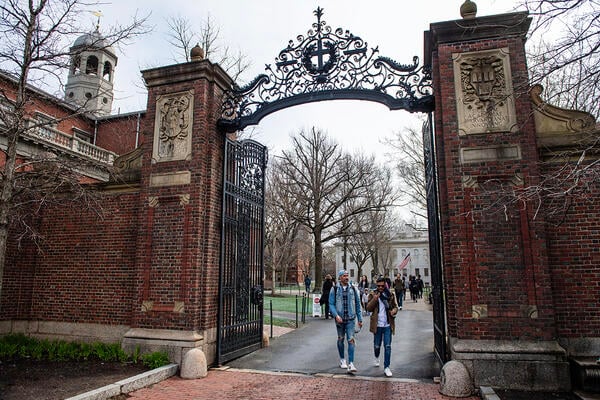
Harvard is facing increasing pressure from the Trump administration after winning back its frozen grants in court.
Joseph Prezioso/AFP/Getty Images
The U.S. Department of Health and Human Services’ Office for Civil Rights announced Monday that it’s moving to cut off Harvard University’s eligibility to receive federal funding.
The announcement comes amid a power struggle between Harvard and the White House.
While the Trump administration has accused Harvard of allowing antisemitism to run amok on campus—and the university has acknowledged concerns on the front—it has sought sweeping power over the institution and changes that go beyond addressing antisemitism. The HHS Office for Civil Rights previously found that Harvard violated Title VI of the Civil Rights Act of 1964, which bars discrimination based on race, color and national origin, and acted with “deliberate indifference toward discrimination and harassment against Jewish and Israeli students,” according to an HHS news release.
Now HHS OCR has recommended cutting off federal funding to Harvard “to protect the public interest” through a suspension and debarment process operated by the HHS Office of the Assistant Secretary for Financial Resources. Suspension would be temporary and debarment would last “for a specified period as a final determination that an entity is not responsible enough to do business with the federal government because of the wrongdoing,” according to the agency. The move comes less than two weeks after the Education Department placed Harvard on heightened cash monitoring—a highly unusual move given the university’s significant resources.
Harvard did not immediately respond to a request for comment Monday.
“OCR’s referral of Harvard for formal administrative proceedings reflects OCR’s commitment to safeguard both taxpayer investments and the broader public interest,” HHS OCR director Paula M. Stannard said in a statement. “Congress has empowered federal agencies to pursue Title VI compliance through formal enforcement mechanisms, including the termination of funding or denial of future federal financial assistance, when voluntary compliance cannot be achieved.”
Harvard has 20 days to request a hearing in front of an HHS administrative law judge, who will decide whether the university violated Title VI.
Monday’s announcement is the latest salvo by the federal government after Harvard emerged initially victorious in a legal battle over more than $2 billion in frozen federal research funding. While a judge ruled that the Trump administration illegally froze funds granted to Harvard, the federal government has continued to pressure the private institution to make changes to disciplinary processes, admissions, hiring and more. Other Ivy League institutions, such as Columbia University and Brown University, have agreed to such deals, under federal scrutiny.

A new report from the Center for American Progress and the Thurgood Marshall College Fund shows that historically Black colleges and universities receive a disproportionately low percentage of federal research and development funding.
While HBCUs make up roughly 3 percent of all four-year higher ed institutions, they’ve received less than 3 percent of R&D funding since at least 2010, according to the report. In recent years, between 2018 and 2023, they were awarded less than 1 percent of R&D expenditures.
Some agencies have given HBCUs a relatively high proportion of R&D funding, including the Department of Education, the Small Business Administration and the Department of Agriculture, which has required allotments for land-grant HBCUs. But the two federal agencies that award the most R&D funding annually, the Department of Health and Human Services and the Department of Defense, have doled out especially low shares of those funds to HBCUs; in 2023, they awarded 0.54 percent and 0.40 percent, respectively. Meanwhile, 17 of the 43 federal agencies that supply research funding didn’t give HBCUs any R&D funds at all that year.
Sara Partridge, associate director of higher education policy at CAP and co-author of the report, said both Republicans and Democrats have sought to address inequities in R&D funding, but their efforts have been insufficient.
“In order to support these key drivers of scientific achievement and upward mobility, we need federal policymakers to commit to measurable benchmarks for the share of funds awarded to these institutions,” she said in a press release.
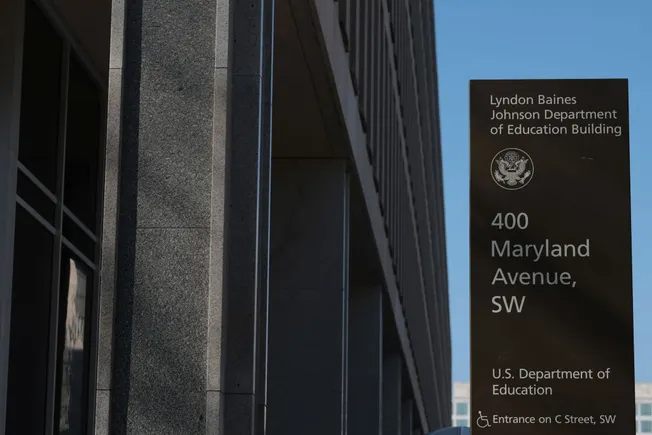
Under the Trump administration, the Education Department and other agencies have opened a flurry of civil rights investigations into colleges and K-12 schools. Some have targeted their diversity efforts and policies that allow transgender students to play on teams and use bathrooms aligning with their gender identities. Others have accused colleges of failing to address antisemitism.
Amid these investigations, the Trump administration has pressured colleges to strike deals with the federal government by freezing or pulling vast sums of federal research funding.
The University of Pennsylvania, for instance, resolved an Education Department investigation in July by agreeing to bar transgender women from competing on women’s sports teams. Penn also agreed to give Division I titles and records to cisgender women who had lost against Lia Thomas, a transgender woman who last competed on the university’s swim team in 2022.
The deal came after the Trump administration had pulled $175 million in federal contracts from Penn. Similarly, Columbia University and Brown University — which were both accused of failing to address campus antisemitism — have paid lofty sums to settle the administration’s allegations after the federal government froze hundreds of millions of dollars of their research grants.
The notice in the Unified Agenda says the Education Department plans to align civil rights enforcement procedures better with statutory requirements. The agency’s new regulations would pertain to enforcement of Title IX and Title VI. Title IX bars discrimination based on sex, while Title VI prohibits discrimination based on race, color or national origin.
The department did not immediately respond to a request for comment Friday.
Not every college targeted by the administration has been pressured into striking a deal.
The Trump administration froze $2.2 billion from Harvard University after the Ivy League institution refused to yield to demands to make sweeping changes to its admissions, hiring and campus policies. Harvard took the administration to court over the frozen funds, with a federal judge ruling in the university’s favor this week.
The Trump administration had said it was pulling the funding because the university had not done enough to address antisemitism on campus. Yet the judge overseeing the case said the evidence does not “reflect that fighting antisemitism was Defendants’ true aim in acting against Harvard.”
The Unified Agenda also provides a look at the agency’s other regulatory priorities, with changes coming down the pike for rules governing accreditation, the Public Service Loan Forgiveness program, and colleges’ reporting requirements for foreign gifts and contracts.
The Education Department recently kicked off the process to craft regulations to implement the sweeping changes mandated by the massive domestic policy bill passed by Republicans this summer.
The legislation will phase out Grad PLUS loans, which allow graduate and professional students to borrow up to the cost of attendance. It also creates lifetime federal loan limits, with a cap of $100,000 for most graduate students and $200,000 for professional students. And it will consolidate a handful of federal loan repayment options into just two — one income-based repayment plan and one standard plan with fixed payments.
Additionally, the policy package threatens to cut off federal student loan eligibility to college programs that can’t prove they provide an earnings boost. Undergraduate programs, for example, must show that at least half of their graduates earn more than a typical high school student in their state.
The American Council on Education and over 40 other higher education groups have urged the Education Department to work with Congress to delay implementing these changes until July 1, 2027.
The Education Department is currently on track to issue the rules no earlier than March 2026 — and likely later than that given the complexity of the law, according to the letter. As a result, the regulations would “impose major changes to financial aid and student loan repayment for millions of students and borrowers only months before they take effect,” the organizations said.
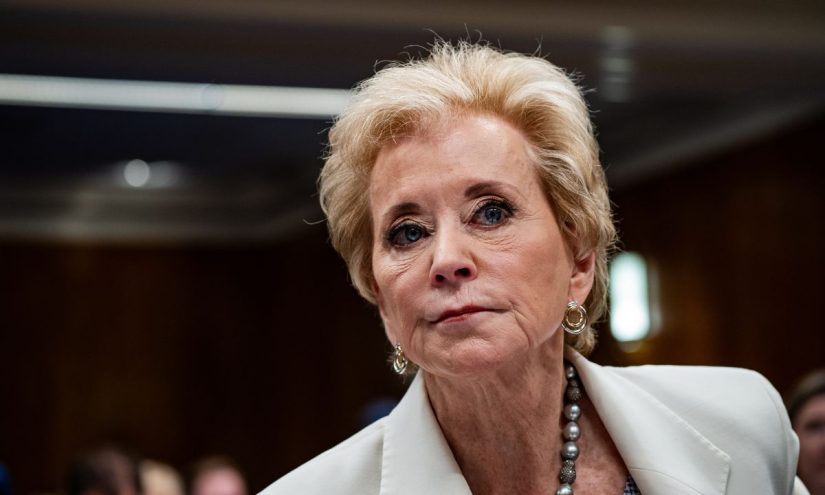
Get stories like this delivered straight to your inbox. Sign up for The 74 Newsletter
A freeze on federal education funding that prompted two lawsuits has been lifted, and states will be able to access the money next week, the U.S. Department of Education announced Friday.
The White House Office of Management and Budget (OMB), which argued that districts were spending the money to advance a “radical left-wing agenda,” has completed its review of five different programs totaling $5.5 billion, said Madison Beidermann, spokeswoman for the department.
The funds support education for English learners and migrant students and pay for staff training and extra instructional positions. The news came a week after the administration released over $1.3 billion for summer and afterschool programs, which was also held up for review.
The department alerted states June 30, one day before they expected to receive the money, that the review was in process, forcing programs to cut staff and end summer programs early. Congress appropriated the funds for this coming school year, and President Donald Trump signed the budget in March.
The release of the funds, announced just hours before Education Secretary Linda McMahon was scheduled to meet with the nation’s governors in Colorado Springs, Colorado, comes as superintendents nationwide were preparing to eliminate services like literacy and math coaches, according to a survey conducted by AASA, the School Superintendents Association. Half of the 628 chiefs who responded from 43 states said they would have to lay off staff who work with special education students if the funds weren’t released. American Federation of Teachers President Randi Weingarten brought the message to attendees at the union’s annual TEACH conference in Washington, D.C.
“The administration backed down and we are getting the money,” she said to a cheering audience. “Those of you who lobbied yesterday, thank you. Those of you who brought the lawsuit, thank you.”
Attorney generals from 24 blue states and the District of Columbia sued on July 14 over the freeze, arguing that the administration’s actions were harming schools. School districts, parents, unions and nonprofits filed a second challenge on July 21, saying that OMB has never stood in the way of the department’s practice of releasing the funds in two steps, first on July 1 and the rest on Oct. 1. Republican senators joined their Democratic colleagues in pressuring the administration to free up the money.
Friday’s announcement doesn’t mean the legal fight is over. In a statement, Skye Perryman, president and CEO of Democracy Forward, which is handling the second case, said the legal team would “continue to monitor the situation and work in court to ensure the administration fully complies with the law and that these resources reach the schools and students who need them most.”
Districts can now start the school year without the shortfall, but that doesn’t mean advocates’ worries are over about future disruptions to funding. The July 1 distribution date is a longstanding practice, not something written into the law.
Tara Thomas, government affairs manager for AASA, said her organization wants to “have additional conversations” with Congress or the administration to “ensure that this type of uncertainty at the last minute doesn’t happen again. Districts need to continue to rely on stable, timely, reliable federal funding.”
Another fight over education funds could also be ahead. The White House is reportedly preparing another recissions package that would target education funding. Thomas said she didn’t know what might be included, but it could be cuts that the Department of Government Efficiency made to grant programs.
On Friday, Trump signed a recissions package, pulling back $9 billion in funds from public television and foreign aid.
Get stories like these delivered straight to your inbox. Sign up for The 74 Newsletter
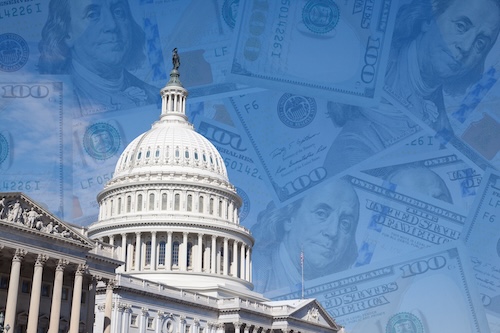
This press release originally appeared online.
Key points:
Communities across the nation began the budget process for the 2025-2026 school year after Congress passed the FY25 Continuing Resolution on March 14, 2025. Historically, states receive these funds on July 1, enabling them to allocate resources to local districts at the start of the fiscal year.
Even though these funds were approved by Congress, the Administration froze the distribution on June 30. Since that time, AASA, The School Superintendents Association, has advocated for their release, including organizing hundreds of superintendents to meet with offices on the Hill to share information about its impact, the week of July 7.
On July 16, the Office of Management and Budget (OMB) announced that Title IV-B or 21st Century funds (afterschool funds) would be released. AASA’s Executive Director issued a statement about the billions of dollars that remain frozen.
To gather more information about the real-world effects on students across America, AASA conducted a survey with its members.
From July 11th to July 18th, AASA received responses from 628 superintendents in 43 states.
Eighty-five percent of respondents said they have existing contracts paid with federal funds that are currently being withheld, and now have to cover those costs with local dollars.
Respondents shared what will be cut to cover this forced cost shift:
As federal funding is still being withheld, 23 percent of respondents have been forced to make tough choices about how to reallocate funding, and many districts are rapidly approaching similar inflection points.
Notably, 29 percent of districts indicated that they must have access to these funds by August 1 to avoid cutting critical programs and services for students. Twenty-one percent of districts will have to notify parents and educators about the loss of programs and services by August 15.
Without timely disbursement of funding, the risk of disruption to essential educational supports for children grows significantly.
As one superintendent who completed the survey said, “This isn’t a future problem; it’s happening now. Our budget was set with these funds in mind. Their sudden withholding has thrown us into chaos, forcing drastic measures that will negatively impact every student, classroom, and school in our district. We urgently need these funds released to prevent irreparable harm to our educational programs and ensure our students get the quality education they deserve.”